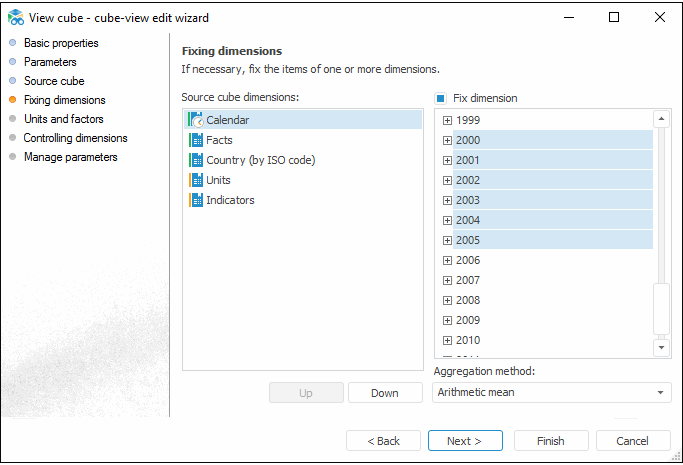
A cube view is a method of displaying source cube data by fixing one or several source cube dimensions. To fix a dimension, select an element, by which the data should be extracted. If required, a dimension can be fixed by selecting several dimension elements. Data will be aggregated by these elements.

Select a dictionary, which elements should be fixed, in the Source Cube Dimensions box. Then select the Fix Dimension checkbox for the selected dictionary and select required dictionary element.
NOTE. After the cube view is created, all dimensions with default element added to the cube source will be automatically put to the cube view with the Fix Dimension selection on the default element.
Multiple element selection becomes available after an aggregation method is selected in the Aggregation drop-down list. The aggregation of fixed dimensions with the use of the specified method is applied for selected elements.
When a report is created based on the cube view, fixed dictionaries are hidden.
Use the Up and Down buttons to change the order of dimension location. This order affects dimension positions on creating a cube. When a cube is created, the first non-fixed dimension is located in columns, and the second one is located in rows. All other dimensions that are not fixed in this list are included into the Fixed group in the report.
See also: